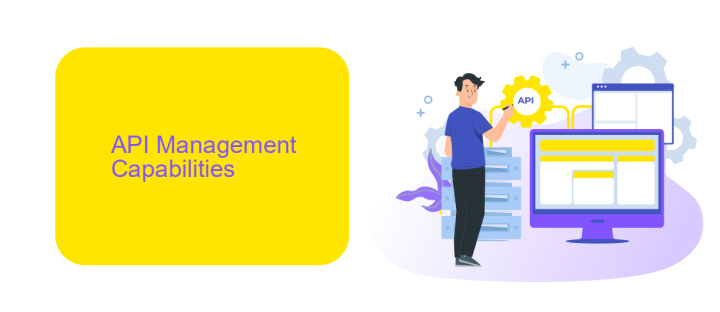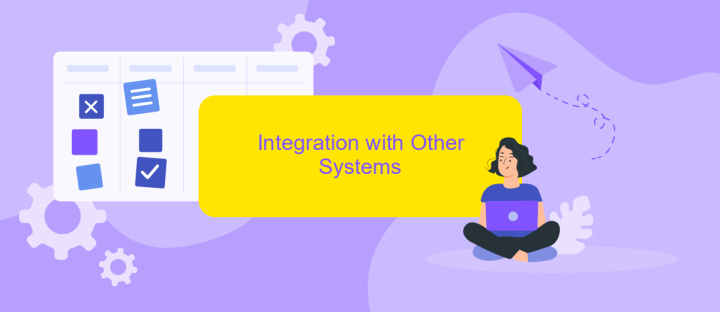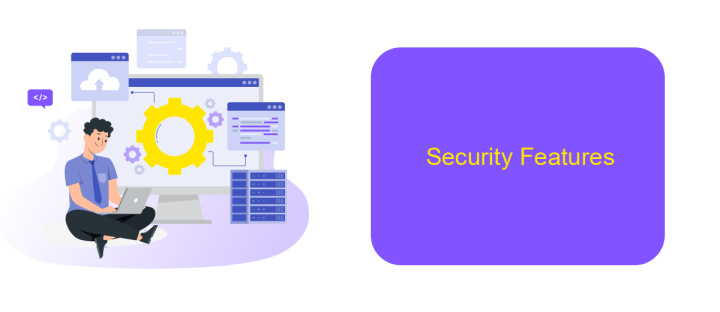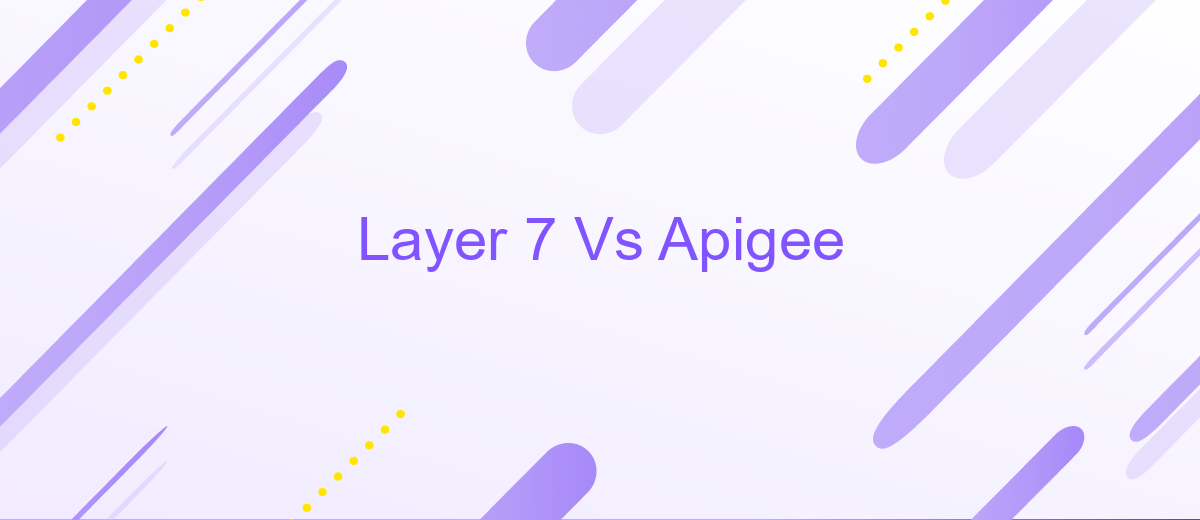Layer 7 Vs Apigee
In the rapidly evolving landscape of API management, choosing the right platform is crucial for ensuring robust performance and seamless integration. This article delves into a comparative analysis of Layer 7 and Apigee, two leading API management solutions. By examining their features, capabilities, and overall effectiveness, we aim to provide insights that will help organizations make informed decisions tailored to their specific needs.
Introduction
In the rapidly evolving landscape of digital transformation, choosing the right API management tool is crucial for seamless integration and efficient data flow. Layer 7 and Apigee are two prominent solutions that offer robust capabilities for managing, securing, and optimizing APIs. Understanding their differences can help organizations make informed decisions to best meet their integration needs.
- Layer 7: Known for its strong security features and scalability.
- Apigee: Offers comprehensive analytics and developer support.
- ApiX-Drive: Facilitates easy integration with various services without requiring coding skills.
Both Layer 7 and Apigee have their unique strengths and cater to different aspects of API management. While Layer 7 excels in security and scalability, Apigee provides extensive analytics and community support. Additionally, tools like ApiX-Drive can further simplify the integration process, making it accessible even to non-developers. This guide aims to explore these tools in detail to help you choose the best fit for your organization.
API Management Capabilities

When comparing Layer 7 and Apigee, it's essential to evaluate their API management capabilities. Layer 7 provides robust security features, including advanced threat protection, OAuth support, and comprehensive access control policies. It excels in ensuring secure API interactions and offers detailed analytics to monitor API performance and usage. Layer 7 also provides tools for API lifecycle management, allowing developers to efficiently design, publish, and version APIs while maintaining compliance with industry standards.
On the other hand, Apigee focuses on enhancing the developer experience and streamlining API integrations. It offers a user-friendly interface for managing APIs, along with features like rate limiting, caching, and real-time analytics. Apigee's integration with services like ApiX-Drive simplifies the process of connecting various applications and automating workflows. This integration capability makes it easier for businesses to manage complex API ecosystems and foster seamless communication between different systems. Both platforms offer unique advantages, making them suitable for different organizational needs.
Integration with Other Systems

Integration with other systems is a critical aspect when choosing between Layer 7 and Apigee. Both platforms offer robust capabilities to connect with various services and applications, ensuring smooth data flow and operational efficiency. However, their approaches and flexibility in integration can differ significantly.
- Layer 7 provides extensive support for REST and SOAP APIs, making it compatible with a wide range of legacy and modern systems.
- Apigee excels in offering pre-built connectors for popular cloud services like AWS, Google Cloud, and Azure, facilitating quicker integrations.
- Both platforms support custom connectors, allowing businesses to tailor integrations to specific needs.
- Tools like ApiX-Drive can further simplify the integration process by automating data transfer between Layer 7, Apigee, and other systems.
Ultimately, the choice between Layer 7 and Apigee for system integration depends on your specific requirements and existing infrastructure. By leveraging tools like ApiX-Drive, you can enhance the integration capabilities of either platform, ensuring seamless connectivity and operational efficiency across your business operations.
Security Features

When comparing Layer 7 and Apigee, it's crucial to consider their security features. Both platforms offer robust security measures to protect your APIs and data, but they approach security in slightly different ways.
Layer 7 focuses on providing comprehensive security through various authentication and authorization methods. It supports OAuth, OpenID Connect, and SAML for secure access control. Additionally, Layer 7 includes features like threat protection, data encryption, and API traffic monitoring to ensure your APIs are safeguarded against potential threats.
- OAuth, OpenID Connect, and SAML support
- Threat protection and data encryption
- API traffic monitoring
- Advanced rate limiting and quota management
Apigee, on the other hand, offers a suite of security features designed to protect APIs at scale. It provides robust identity and access management, including OAuth and JWT support. Apigee also integrates with ApiX-Drive to streamline API integration and management. This allows for automated workflows and enhanced security measures across different services and applications. Both platforms ensure your APIs remain secure, but the choice between Layer 7 and Apigee will depend on your specific security needs and integration preferences.
Cost and Support
When it comes to cost, Layer 7 and Apigee offer different pricing models that cater to various business needs. Layer 7 typically provides a more flexible, consumption-based pricing structure, allowing businesses to pay for only what they use. This can be particularly beneficial for startups or smaller enterprises looking to manage their budgets effectively. On the other hand, Apigee offers a tiered pricing model that scales with the size and complexity of the deployment, which might be more suitable for larger organizations with predictable traffic and usage patterns.
Support is another crucial factor to consider. Both Layer 7 and Apigee provide comprehensive support options, including documentation, community forums, and dedicated support teams. However, Apigee is known for its robust customer support and extensive resources, which can be invaluable for businesses that require more hands-on assistance. Additionally, for those looking to streamline their integration processes, services like ApiX-Drive can be highly beneficial. ApiX-Drive offers automated integration solutions that simplify connecting various applications and services, ensuring smoother operations and reducing the need for extensive manual intervention.
- Automate the work of an online store or landing
- Empower through integration
- Don't spend money on programmers and integrators
- Save time by automating routine tasks
FAQ
What is the primary difference between Layer 7 and Apigee?
Which platform is better for securing APIs?
Can I use these platforms to integrate with third-party applications?
How do these platforms handle API analytics?
Are there tools to automate and streamline API integration?
Apix-Drive is a simple and efficient system connector that will help you automate routine tasks and optimize business processes. You can save time and money, direct these resources to more important purposes. Test ApiX-Drive and make sure that this tool will relieve your employees and after 5 minutes of settings your business will start working faster.


